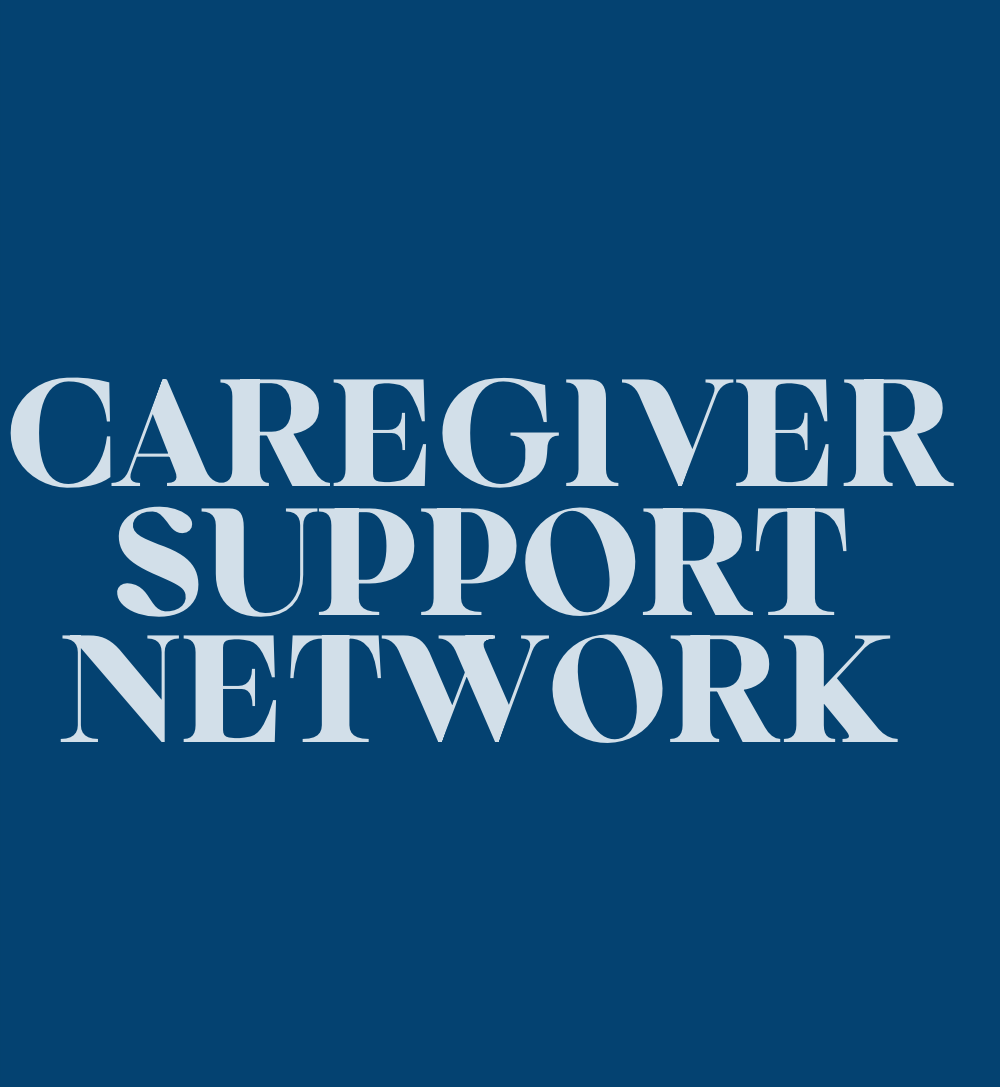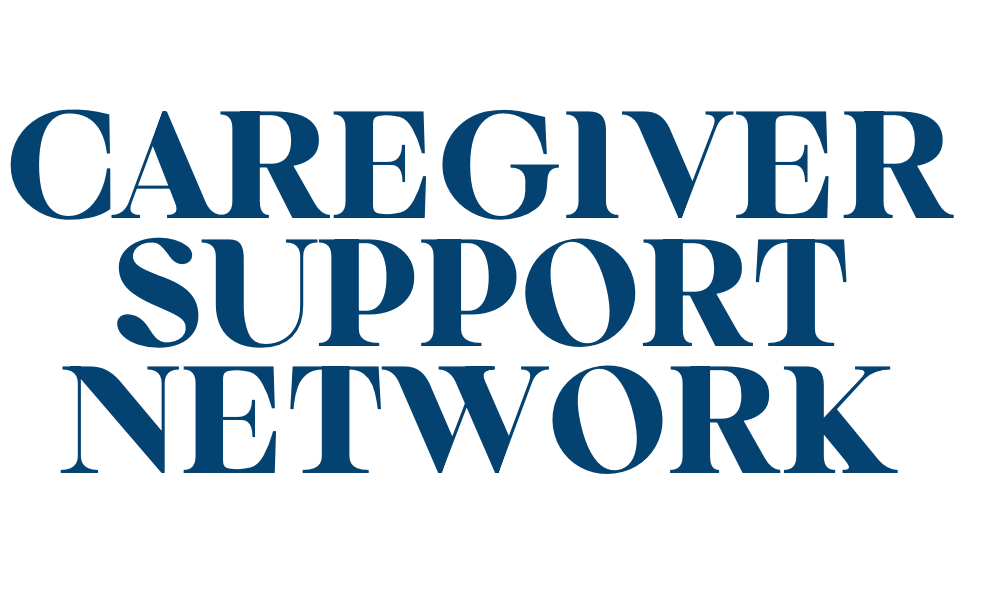Caregiver Support
When Grief Is at Its Worst: Understanding the Peaks
Witness the intense emotions of grief peaks, uncovering ways to navigate through overwhelming feelings and find healing.

When grief is at its worst, we face intense emotions that can be overwhelming. These peaks often hit during special occasions, triggering sadness, anger, and guilt. It's okay to feel this way – grieving involves such emotions. They may even lead to physical symptoms like fatigue. To cope, try deep breathing or journaling. Seeking help is vital; therapists and support groups offer guidance. While it may feel lonely, sharing memories and seeking support can lessen the burden. By acknowledging and working through these intense feelings, healing and peace become possible. Understanding these peaks helps us navigate the journey of grief.
Key Takeaways
- Grief peaks bring overwhelming emotions like sadness, anger, and guilt.
- Intensified emotions impact daily tasks and well-being.
- Breathing exercises aid in emotional regulation during grief peaks.
- Seeking professional guidance and peer support is crucial.
- Acknowledge loneliness, seek support, and commemorate loved ones for healing.
The Nature of Grief Peaks
During grief peaks, our emotions surge to overwhelming levels, creating intense periods of emotional distress. Waves of grief can be triggered by anniversaries, special occasions, or unexpected reminders of the loss. These peaks may manifest as overwhelming sadness, anger, guilt, or a combination of emotions. Understanding that experiencing these intense emotions is a normal part of the grieving process is crucial. Loss and grief go hand in hand, and it's okay to feel a range of emotions during this time.
Navigating through these peaks can be challenging, but it's vital to remember that it's a natural part of the healing journey. Grief peaks can lead to physical symptoms like fatigue, loss of appetite, or difficulty sleeping. By acknowledging and accepting these emotions, individuals can begin to cope with the intense feelings they're experiencing. Understanding the nature of grief peaks can help individuals recognize that these emotions, though difficult, are a necessary part of the healing process.
Recognizing Intensified Emotions

Recognizing intensified emotions during periods of grief is essential.
We may experience heightened emotional responses like anger, guilt, and profound sadness.
These overwhelming feelings can make daily tasks challenging and trigger waves of intense sorrow.
Heightened Emotional Responses
Experiencing intense emotions like overwhelming sorrow, fury, remorse, or unease is a common occurrence during grief peaks. These heightened emotional responses can feel overwhelming and may even manifest as physical symptoms like exhaustion, sleeplessness, or lack of appetite. It's important to recognize these intensified emotions during grief peaks as they can impact our well-being.
If you or someone you know is going through a grief peak, acknowledging these intense feelings is the first step towards seeking appropriate support and coping mechanisms. Grief peaks can be triggered by significant anniversaries, holidays, or unexpected reminders of the loss, intensifying these emotional responses.
Understanding and accepting the intensity of these emotions is crucial for effectively managing the grieving process.
Overwhelming Sense of Loss
In moments of grief peaks, individuals often confront an overwhelming sense of loss that amplifies their emotional turmoil. This deep sadness can feel all-encompassing, making it hard to see beyond the grief.
Intensified emotions, such as anger, guilt, and despair, can further complicate the healing process. During these tough times, it's vital to experience physical symptoms like fatigue, insomnia, and loss of appetite due to the emotional weight.
Recognizing the intensity of these emotions is paramount for moving forward in the healing journey. It's essential to allow oneself to feel these emotions fully, seeking support from loved ones or professionals when needed.
Intense Waves of Sorrow
During moments of grief peaks, individuals often find themselves engulfed by intense waves of sorrow, which can be triggered by significant anniversaries, holidays, or special events. When experiencing these intense emotions, it's important to recognize and address them.
Here are some ways to navigate through intense waves of sorrow:
- Acknowledge Your Feelings: Allow yourself to feel the sorrow without judgment.
- Seek Support: Lean on loved ones or consider speaking with a therapist for guidance.
- Self-Care: Engage in activities that bring you comfort and peace.
- Express Yourself: Write in a journal, create art, or talk about your emotions with trusted individuals.
Coping Strategies for Grief Peaks

When facing intense grief peaks, it's important to remember coping strategies like breathing exercises and journaling. These activities can help us manage strong emotions and find relief during difficult times.
Breathing Exercises for Grief
How can breathing exercises assist in managing intense grief peaks effectively?
Breathing exercises play a vital role in helping us navigate through the turbulent waters of grief. Here are some ways in which these exercises can support us during difficult times:
- Deep Breathing Techniques: By engaging in deep breathing, we can calm our nervous system and alleviate physical symptoms of grief such as chest tightness.
- Mindful Breathing: Practicing mindful breathing helps us stay present, easing overwhelming emotions that often accompany grief peaks.
- Emotional Regulation: Controlled breathing exercises can help regulate our emotions, providing a sense of stability and control when experiencing intense grief episodes.
- Building Resilience: Regular incorporation of breathing exercises into our routines can enhance coping mechanisms, making us more resilient in dealing with grief peaks.
Journaling for Emotional Release
Journaling becomes a valuable outlet for releasing pent-up emotions and commencing the challenging waves of grief peaks. When our dad died years ago, we found solace in putting our thoughts on paper. Writing about the pain and memories helped us process the overwhelming emotions that seemed insurmountable.
By documenting our experiences in a journal, we gained clarity and insights into our grieving process. Reflecting on our entries allowed us to track our progress and find a sense of catharsis. Through journaling, we set off on a journey of self-discovery and healing during those difficult times.
Seeking Support During Peaks

During peaks of grief, seeking support from therapists, counselors, or support groups can provide valuable assistance in managing intense emotional experiences. Here are some ways seeking support can help during these challenging times:
- Professional Guidance: Connecting with a therapist or counselor can offer a safe space to explore feelings and develop coping strategies tailored to individual needs.
- Peer Support: Engaging with support groups allows individuals to share experiences with others who understand their pain, fostering a sense of community and understanding.
- Emotional Validation: Sharing feelings with trusted individuals can provide comfort and validation, helping individuals feel understood and less alone in their grief.
- Self-Care Practices: Incorporating self-care activities like exercise, journaling, or meditation alongside professional support can aid in coping with heightened grief, promoting overall well-being.
Navigating Isolation and Loneliness

Coping with feelings of isolation and loneliness during the depths of grief can be incredibly challenging. It's common to feel disconnected from others and withdrawn when experiencing intense grief. The overwhelming sense of loneliness can make it hard to reach out for support, but it's essential to remember that you're not alone. Seeking comfort from loved ones and expressing your feelings can help ease the burden of loneliness. Remember that it's okay to ask for help and lean on those who care about you.
During peak periods of grief, finding ways to connect with others is important. Joining support groups or seeking professional help can provide a sense of community and understanding. These avenues offer a safe space to share your emotions and experiences with others who may be going through similar struggles. Remember, reaching out for support is a sign of strength, not weakness. You deserve to have people around you who can offer comfort and companionship during these difficult times.
Honoring Memories Amidst Intensity

Amidst the intensity of grief, embracing both happy and sad recollections while honoring memories becomes a meaningful way to navigate the peaks of sorrow.
Here are four ways to honor memories amidst the intensity of grief:
- Commemorate Special Moments: Finding ways to celebrate and remember special moments with loved ones who've passed away can bring comfort during peak grief periods. This could involve creating a memory box, planting a tree in their honor, or dedicating a special day to their memory.
- Create Rituals or Traditions: Establishing rituals or traditions to honor memories can aid in processing intense emotions. Lighting a candle on significant dates, preparing their favorite meal, or visiting a place they loved can be comforting practices.
- Share Stories and Memories: Sharing stories and memories with others who knew the departed can be a healing way to honor their legacy. It allows for reminiscing about the good times and acknowledging the impact they had on everyone's lives.
- Engage in Meaningful Activities: Engaging in activities that connect to cherished memories, such as listening to their favorite music, watching a movie they loved, or participating in a hobby they enjoyed, can be a poignant way to navigate the peaks of grief.
Moving Forward From Grief Peaks

Traversing through grief peaks involves embracing the intense emotions and allowing ourselves to fully experience them as part of the healing process. It's vital to recognize that these peaks are natural stages in the journey of healing after a loved one has passed away.
To move forward from these peaks, it's essential to accept and acknowledge the depth of our emotions. Seeking support from friends, family, or a therapist can provide guidance and comfort during these challenging times. Engaging in self-care activities like exercise, journaling, or meditation can help in coping with the intensity of grief peaks.
Additionally, finding meaningful ways to honor and remember the individual who passed away while continuing to make progress in our healing process can be a powerful step forward. By allowing ourselves to feel the emotions fully and seeking support when needed, we can navigate through grief peaks and gradually move towards a place of healing and peace.
Frequently Asked Questions
What Stage of Grief Is the Hardest?
The hardest stage of grief is often the 'Depression' stage, where feelings of sadness and hopelessness prevail. It can be challenging to navigate day-to-day activities and find joy. Understanding this phase helps us practice patience and self-compassion.
What Is the Peak of Grief?
The peak of grief is when emotions are most intense, filled with profound sadness and despair. It often coincides with significant events or reminders of loss, bringing physical symptoms like fatigue and insomnia. Understanding it helps navigate this phase.
What Is Considered to Be the Most Painful Type of Grief?
Losing a child is often deemed the most painful form of grief. The bond shattered, dreams unfulfilled. The heart aches in ways unimaginable. We cling to memories, seeking solace in the void left behind.
What to Do With Deep Grief?
When deep grief overwhelms us, we support each other by engaging in self-care, seeking help from loved ones and professionals, honoring our emotions, creating meaningful rituals, and remembering that healing takes time.
Conclusion
As we journey through the peaks of grief, remember that like a mountain, the path may be steep and challenging. But just as climbers reach the summit, we too can overcome the intense emotions and find peace.
By recognizing, coping, and seeking support, we can navigate through the darkness and honor our memories with strength and resilience.
With time and perseverance, we can move forward from the peaks of grief and find hope on the other side.
Albert brings a wealth of knowledge and expertise to our writing team. With a background in caregiving and a deep understanding of the challenges faced by caregivers, Albert’s writing resonates with authenticity and empathy. He is committed to delivering high-quality content that empowers and supports caregivers on their journey.
Caregiver Tips
Unlocking Peace: Key Benefits Of Practicing Stillness

In today’s fast-paced world, finding moments of calm may seem like an impossible task. However, did you know that incorporating tranquility into your daily routine could significantly improve your overall well-being? A recent study shows that individuals who regularly embrace stillness experience a 30% reduction in stress levels and report feeling more content and happy.
Imagine being able to tap into a sense of inner peace, boost your creativity, and enhance your focus, all by simply taking a few moments to cultivate stillness in your life. The power of stillness is truly remarkable, and in the following sections, we will explore its key benefits and how you can incorporate it into your daily routine.
Key Takeaways:
- Practicing stillness can reduce stress levels by 30%.
- Regularly incorporating stillness into your routine can increase your overall contentment and happiness.
- Stillness provides a profound sense of inner peace.
- Practicing stillness boosts creativity and enhances focus.
- By cultivating moments of stillness, you can experience greater well-being and balance in your life.
The Benefits Of Stillness
When we embrace stillness, we open ourselves up to a myriad of incredible benefits that positively impact our overall well-being. Let’s explore these remarkable advantages:
1. Setting Intentions: By creating a quiet space and allowing stillness to enter our lives, we can set clear intentions and align them with our goals and dreams. Stillness provides the canvas upon which we can paint our aspirations.
2. Focus and Reflection: Amidst the chaos of daily life, stillness allows us to filter out distractions and direct our attention inward. We can reflect on our experiences, thoughts, and emotions, gaining valuable insights and a deeper understanding of ourselves.
3. Reducing External Stimuli: In a world filled with constant noise and distractions, stillness provides a much-needed respite. By intentionally seeking moments of stillness, we give ourselves the gift of peace and tranquility.
4. Calming the Nervous System: The practice of stillness has a profound impact on our nervous system, helping to reduce stress, anxiety, and overwhelm. It allows us to shift from a state of fight-or-flight to one of relaxation and calm.
5. Letting Go: Through stillness, we can release thoughts and worries that no longer serve us. It enables us to detach from negative emotions, cultivate a sense of surrender, and free ourselves from the burdens of the mind.
6. Tapping Into Intuition: Stillness opens a door to our intuition, our inner voice of wisdom. By quieting external voices and focusing inward, we can access our innate knowledge, make decisions aligned with our true selves, and navigate life’s challenges with clarity.
7. Staying Present: In a fast-paced world, stillness grounds us in the present moment. It helps us let go of regrets about the past and worries about the future, allowing us to fully embrace the beauty and joy of the present.
8. Bringing Clarity: Within stillness, we find clarity of thought and purpose. It enables us to see through the fog of confusion and uncertainty, offering a fresh perspective on life’s complexities and helping us make conscious choices.
9. Increasing Creativity: The unique space of stillness nurtures creativity within us. When we silence the noise around us, we tap into the wellspring of inspiration, leading to innovative ideas, breakthroughs, and artistic expression.
10. Improving Sleep: Stillness relaxes our minds and bodies, preparing us for restful sleep. By letting go of the day’s worries and embracing tranquility, we enhance our ability to attain a deep and rejuvenating slumber.
11. Coping with Adversity: Through the practice of stillness, we cultivate resilience and emotional strength. It enables us to find solace within, to face life’s challenges with grace and fortitude, and to emerge stronger on the other side.
Incorporating stillness into our lives grants us access to these transformative benefits. The power to find peace, clarify our thoughts, boost creativity, and navigate life’s ups and downs with resilience lies within each of us. Are you ready to embrace the benefits of stillness?
Helps You Let Go
When practicing stillness, we learn to focus on our thoughts without actively engaging in them. This process creates space for what serves us and helps us let go of what no longer serves our well-being.
By observing our thoughts without judgment, we can find peace and clarity within ourselves. Letting go of negative thoughts, worries, and anxieties becomes easier as we cultivate a sense of stillness. It allows us to release the mental burden that weighs us down and prevents us from experiencing true tranquility.
Letting go through practicing stillness doesn’t mean suppressing or ignoring our thoughts and emotions. Instead, it gives us the opportunity to acknowledge them without getting entangled in their grip. It enables us to detach and take a step back, creating a healthier relationship with our thoughts and emotions.
“Letting go gives us freedom and freedom is the only condition for happiness.” – Thich Nhat Hanh
Through stillness, we can let go of the constant stream of thoughts that often overwhelm us. It enables us to find a sense of calm acceptance and surrender to the present moment, freeing ourselves from the shackles of the past and worries about the future.
Letting go doesn’t mean we become complacent or indifferent. On the contrary, it empowers us to approach life with a greater sense of ease and resilience. We learn to accept the things we cannot change and focus on what is within our control.
As we practice stillness and let go, we create space for new possibilities and inner growth. We release attachments to outcomes and trust in the natural flow of life. This newfound sense of surrender allows us to embrace change, adapt to challenges, and find joy in the present moment.
Letting go through the practice of stillness is a transformative journey. It requires patience, self-compassion, and consistent practice. As we learn to release what no longer serves us, we pave the way for a more peaceful and fulfilling life.
Letting Go Exercise
- Sit comfortably in a quiet space, allowing yourself to relax and unwind.
- Take a few deep breaths, inhaling slowly through your nose and exhaling through your mouth.
- Bring your attention to your thoughts and observe them without judgment.
- Notice any thoughts or emotions that arise and remind yourself that you have the power to let them go.
- Visualize releasing these thoughts and emotions, imagining them flowing out of your mind and dissipating into the atmosphere.
- Repeat a calming mantra or affirmation, such as “I let go of what no longer serves me.”
- Continue observing your thoughts, gently letting go of any that arise, and returning to a state of stillness.
- Practice this exercise regularly to cultivate the art of letting go through stillness.

| Benefits of Letting Go Through Stillness | Description |
|---|---|
| Increased emotional well-being | By letting go of negative thoughts and emotions, we experience greater emotional balance and well-being. |
| Reduced stress and anxiety | Letting go helps alleviate stress and anxiety by releasing tension and promoting a state of calm. |
| Improved mental clarity | When we let go, our minds become clearer, allowing us to make better decisions and find creative solutions to challenges. |
| Enhanced self-acceptance | Letting go fosters self-compassion and self-acceptance, as we learn to embrace our imperfections and let go of self-judgment. |
| Greater resilience | Through the practice of letting go, we become more resilient and adaptable, navigating life’s ups and downs with grace and ease. |
Helps Tap Into The Intuition
Stillness is not just about finding peace and quiet in our surroundings; it is also about quieting the chaos within and listening to our own intuition. In a world filled with external voices and influences, practicing stillness allows us to tune into our inner wisdom and make decisions based on our own instincts and intuition.
When we tap into our intuition, we are able to access a deep well of knowledge and understanding that resides within us. It is a powerful tool that can guide us in making choices that align with our true selves and lead to greater fulfillment.
By taking the time to be still and quiet our minds, we create space for our intuition to rise to the surface. We become more attuned to the subtle cues and whispers that come from within, guiding us on our path. Whether it’s making a career change, embarking on a new creative endeavor, or navigating a relationship, our intuition can provide invaluable guidance and clarity.
“Intuition is the key to everything, in painting, filmmaking, business – everything. I think you could have an intellectual ability, but if you can sharpen your intuition, which they say is emotion and intellect joining together, then a knowingness occurs.”
– David Lynch
When we practice stillness, we create a sacred space within ourselves where we can listen to the whispers of our intuition. It is in this space that we can tap into our inner wisdom and trust ourselves to make decisions that are aligned with our highest good.
Fostering Intuition through Stillness
There are several practices that can help us tap into our intuition while practicing stillness:
- Meditation: Engage in a regular meditation practice to quiet the mind and connect with your intuition.
- Journaling: Spend time writing in a journal to explore your thoughts and feelings, and allow your intuition to come forth.
- Spending Time in Nature: Connect with the natural world and allow its beauty and serenity to inspire and align you with your inner voice.
- Listening to Inner Prompts: Pay attention to the little nudges and gut feelings that arise throughout your day, and trust them as guidance from your intuition.
By incorporating these practices into our lives, we can strengthen our connection to our intuition and cultivate a deep sense of trust in ourselves. The wisdom that arises from within can serve as a guiding light, leading us toward the path that is most aligned with our authentic selves.

Helps You Stay In The Present
Anxiety and stress can often consume us when we find ourselves dwelling on the past or worrying about the future. Our minds become cluttered with thoughts that take us away from experiencing the joy of the present moment. However, practicing stillness can help us stay grounded and fully embrace the here and now.
In the midst of our busy lives, taking moments of stillness allows us to pause and appreciate the little wonders that surround us. It is in these quiet moments that we can truly connect with our surroundings, our loved ones, and most importantly, ourselves.
“The present moment is the only moment where life exists.”
When we are present, we can engage fully in the activities we are involved in. Whether it’s having a conversation with a friend, enjoying a meal, or simply taking a walk in nature, being present allows us to savor the richness of each experience.
By practicing stillness, we cultivate mindfulness and train our minds to let go of distracting thoughts. We become more aware of our thoughts and emotions without getting caught up in them. This heightened sense of awareness helps us respond to situations with greater clarity and wisdom.
Let’s avoid letting our minds wander and miss out on the beauty of the present moment. Instead, let’s embrace the practice of stillness and stay present, allowing ourselves to fully engage in the gift of now.

Helps Bring Clarity
Stillness is a powerful practice that allows us to step back from the chaos of life, creating space for clarity to emerge. By embracing stillness, we can quiet the noise within, redirect our focus, and think clearly. This clarity enables us to gain a deeper understanding of our thoughts, emotions, and challenges, leading to effective problem-solving and decision-making.
When we pause and redirect our minds, we create an opportunity for clarity to arise. In the midst of confusion or overwhelm, stillness provides a calm retreat where we can gather our thoughts and find solutions. It allows us to detach ourselves from the external distractions that muddy our thinking, bringing us back to the present moment and helping us regain perspective.
“In the stillness, we find clarity.”
Practicing stillness fosters a sense of mental clarity that promotes focus, concentration, and mindfulness. By reducing mental clutter, we can better prioritize tasks, identify priorities, and achieve a state of flow. It enables us to see beyond the surface level and gain insights that may have been obscured in the busyness of our everyday lives.
With clarity, our thoughts become like a crystal-clear stream, guiding us towards the most effective and efficient actions. We become aware of our values, desires, and goals, allowing us to align our decisions and actions accordingly. By practicing stillness, we create a foundation of clarity that permeates all aspects of our lives, supporting us in finding meaning, direction, and purpose.
How Stillness Enhances Clarity
| Benefits of Stillness | Description |
|---|---|
| Enhanced focus | Redirecting attention and eliminating distractions improves concentration on the task at hand, leading to greater clarity. |
| Emotional regulation | Stillness allows us to observe and respond to emotions from a place of clarity, promoting emotional balance. |
| Mental decluttering | Quietening the mind through stillness helps clear away mental noise and create a space for clear thinking. |
| Improved decision-making | Clarity gained through stillness enables us to make informed, thoughtful decisions that align with our values and goals. |
| Deeper self-understanding | By stepping back from the chaos, we gain insight into ourselves, our thoughts, and our motivations, fostering self-awareness. |

Helps Increase Creativity
Practicing stillness is not only beneficial for finding inner peace and tranquility, but it also has a profound impact on our creativity. When we engage in stillness, we activate the right brain, which is associated with imagination and creative thinking. By tapping into our creative center through the practice of stillness, we open ourselves up to a world of endless possibilities and inspirations.
In today’s fast-paced and constantly buzzing world, it can be challenging to find moments of calm and silence. However, dedicating time to practicing stillness allows our minds to wander freely and explore new ideas. It is during these moments of stillness that our creativity truly flourishes.
During periods of stillness, our minds are unburdened by external distractions and demands, which enables us to fully immerse ourselves in the creative process. By letting go of our daily worries and stressors, we create space for innovative thoughts and fresh perspectives to emerge.
Moreover, stillness provides an opportunity for self-reflection and introspection. Through quiet contemplation, we gain deeper insights into ourselves and the world around us. This enhanced self-awareness fosters the ability to think outside the box and approach challenges from unique angles.
The practice of stillness not only increases our creativity but also enhances our problem-solving skills. By entering a state of calm and clarity, we become more receptive to new ideas and solutions. As a result, we can overcome creative blocks and find innovative ways to express ourselves.

Embracing stillness as a daily practice not only benefits our creative endeavors but also enriches our overall well-being. So, let’s make time for stillness, unlock our creative potential, and discover the extraordinary within ourselves.
Helps Improve Sleep
Practicing stillness can have a profound impact on sleep quality. By incorporating moments of calm and tranquility into our daily routine, we can achieve a relaxed state of mind that promotes better sleep. Whether it’s before bedtime or in the middle of a restless night, the practice of stillness can help us find restful slumber and wake up feeling refreshed.
The process of practicing stillness allows us to quiet our racing thoughts and reduce worries, enabling our minds to unwind from the stresses of the day. By embracing stillness, we create a space for inner peace and tranquility, providing a sense of calm that prepares us for a good night’s sleep.
Even during those nights when sleep seems elusive, the practice of stillness can come to the rescue. By focusing on deep, rhythmic breathing and gently redirecting our thoughts, we can quiet our restless minds and fall back asleep more easily.

Creating a soothing environment for sleep is essential, and practicing stillness is a powerful tool in achieving this. By incorporating practices such as meditation, mindfulness, or guided visualization, we can create moments of stillness that promote relaxation and prepare our minds and bodies for deep, restorative sleep.
“Practicing stillness has transformed my sleep quality. Instead of tossing and turning, my mind finds calm and peace, allowing me to drift into a deep slumber. It’s truly a game-changer!” – Christina, a dedicated practitioner of stillness.
Make stillness a part of your bedtime routine and experience the incredible benefits it brings to your sleep. The journey to improved sleep starts with embracing the power of stillness and cultivating moments of tranquility and peace.
Helps Cope With Adversity
Practicing stillness can be a powerful tool to cope with the adversities that life throws at us. While it may not change the situation we are facing, it can provide us with a sense of calm and resilience to navigate through challenging times.
When we practice stillness, we tap into our inner peace. It allows us to find a quiet space within ourselves, free from the chaos and turmoil that surrounds us. In this space, we can gather our thoughts, regain clarity, and find the strength to face adversity head-on.
Adversity can often leave us feeling overwhelmed and anxious. But through practicing stillness, we can cultivate a sense of inner strength and stability. It helps us develop a mindset that enables us to approach challenges with a calm and collected demeanor.
“In the midst of chaos, practicing stillness helps us find our center and maintain our balance.”
By embracing stillness, we learn to observe our thoughts and emotions without getting entangled in them. This ability allows us to detach ourselves from the negativity and stress that adversity brings, enabling us to respond with clarity and grace.
Ultimately, practicing stillness equips us with the tools we need to cope with adversity. It helps us connect with our inner wisdom and find solace amidst the storm. Whether it is through meditation, mindfulness, or simply taking a few moments of quiet reflection, the practice of stillness empowers us to face life’s challenges with resilience and inner strength.

The Benefits of Practicing Stillness in Adversity:
- Reduces stress and anxiety levels
- Increases emotional resilience
- Enhances problem-solving abilities
- Fosters a sense of calm and clarity
- Promotes self-compassion and self-care
How To Practice Stillness?
To truly reap the benefits of stillness, it is essential to incorporate regular practice into your daily routine. Here are some effective ways to practice stillness:
-
Take deep breaths: Deep breathing exercises can help calm the mind and relax the body. Find a quiet space, sit comfortably, and focus on taking slow, deep breaths. Feel the breath entering and leaving your body, allowing yourself to let go of tension and stress with each breath.
-
Practice whenever and wherever: Stillness can be practiced anywhere, at any time. Whether you’re sitting at your desk, waiting in line, or taking a walk in nature, take a moment to pause, tune into your surroundings, and be present in the moment.
-
Schedule practice time: Set aside dedicated time each day for practicing stillness. It could be early morning, during a lunch break, or before bedtime. By scheduling practice time, you prioritize stillness and make it a non-negotiable part of your daily routine.
-
Choose a favorite place: Find a quiet and peaceful space where you feel calm and relaxed. It could be a cozy corner in your home, a park bench, or even your garden. Creating a designated space for stillness can enhance your practice and make it easier to attain a state of tranquility.
-
Play soft music: Ambient and calming music can help create a serene atmosphere for practicing stillness. Choose instrumental tracks or nature sounds that resonate with you and aid in achieving a sense of inner peace.
-
Repeat calming mantras or affirmations: Mantras or affirmations can serve as powerful tools to quiet the mind and focus your thoughts. Choose phrases that resonate with you, such as “I am calm and centered” or “I invite peace and stillness into my life.” Repeat them silently or aloud during your practice.
Remember, practicing stillness is a personal journey, and what works for one person may not work for another. Explore different techniques, be patient with yourself, and find a practice that resonates with you. Embrace the moments of stillness amidst the chaos of daily life, and allow them to nourish your soul.
“Stillness is not the absence of movement or sound. It is the presence of inner tranquility that can be found within ourselves, even amidst the busiest of times.”
– Unknown
Physical Benefits of Stillness
Practicing stillness offers a range of physical benefits that contribute to overall well-being and vitality. It has a profound impact on our bodies, helping to alleviate stress, promote better sleep, enhance concentration, and achieve emotional balance.
One of the primary physical benefits of stillness is stress relief. By consciously creating moments of stillness, we allow our bodies to relax and unwind, reducing the harmful effects of stress hormones. This can lead to improved cardiovascular health, reduced muscle tension, and a sense of calmness.
Furthermore, stillness enhances our ability to concentrate and focus. In a world filled with distractions, taking time to quiet the mind can sharpen our cognitive abilities and increase mental clarity. By practicing stillness, we train our minds to remain present and fully engaged, leading to improved productivity and performance.
Improved sleep is another significant physical benefit of stillness. By embracing moments of stillness before bed, we create a peaceful environment for our bodies and minds to rest. This allows us to achieve a deep and restorative sleep, ensuring we wake up feeling refreshed and energized.
In addition, practicing stillness contributes to emotional balance. When we cultivate a regular stillness practice, we create space to process and regulate our emotions. This can lead to a greater sense of emotional well-being, increased resilience, and the ability to respond to challenging situations with equanimity.

| Physical Benefits of Stillness |
|---|
| Stress relief |
| Improved concentration |
| Better sleep quality |
| Enhanced emotional balance |
By incorporating stillness into our daily lives, we can experience these physical benefits, nurturing our bodies and promoting overall well-being. The power of stillness lies in its ability to create a harmonious balance between our inner and outer selves, allowing us to thrive both physically and mentally.
Mental Benefits of Stillness
Practicing stillness offers a multitude of mental benefits that can significantly improve our well-being. Let’s explore some of these benefits:
Increased Self-Awareness
Stillness allows us to become more attuned to ourselves and our inner world. It provides an opportunity for introspection and self-reflection, helping us gain a deeper understanding of our thoughts, emotions, and behaviors. By cultivating self-awareness, we can make more conscious choices and live a more authentic life.
Mindfulness
Engaging in stillness encourages us to be fully present in the moment, cultivating mindfulness. It involves paying attention to our thoughts, feelings, and sensations without judgment. Mindfulness helps us develop a greater sense of clarity, focus, and resilience in the face of challenges.
“In the midst of movement and chaos, keep stillness inside of you.” – Deepak Chopra
Observing Thoughts
By practicing stillness, we can observe our thoughts without getting carried away by them. This skill allows us to create distance from negative or repetitive thoughts, reducing their influence over our mental well-being. It empowers us to respond to our thoughts in a more objective and constructive manner.
Self-Reflection
Stillness provides a space for quiet contemplation and self-reflection. It allows us to look inward, examine our values, beliefs, and aspirations, and make adjustments if necessary. Self-reflection enables personal growth and helps align our actions with our true selves.
Positive Response to Challenges
When faced with challenges or difficult situations, stillness equips us with the tools to respond in a positive and proactive manner. It cultivates a sense of calm, resilience, and emotional balance, enabling us to navigate adversity with grace and fortitude.
Embracing the mental benefits of stillness can have a transformative impact on our overall well-being, allowing us to cultivate a deeper understanding of ourselves, regulate our emotions, and foster a positive mindset.

Creating Moments of Stillness
Practicing stillness is not limited to specific settings or circumstances. It can be cultivated in any situation or environment, allowing us to find moments of tranquility amidst the chaos of daily life. Here, we explore different strategies to create stillness and incorporate it into our routine.
Finding Intentional Pauses
One way to practice stillness is by intentionally pausing throughout the day. Whether it’s taking a short break from work, stepping outside for a breath of fresh air, or simply sitting quietly for a few minutes, these intentional pauses can help us reset our minds and regain focus.
Focus on the Breath
The breath is a powerful tool for centering ourselves and practicing stillness. By directing our attention to the rhythm of our breath, we can anchor our focus to the present moment and let go of distractions. Taking slow, deep breaths and feeling the sensation of each inhale and exhale can cultivate a sense of calm and stillness within.
Be Present and Practice Mindfulness
Mindfulness is a practice that involves bringing our attention to the present moment without judgment. By engaging our senses and becoming fully aware of our surroundings, we can immerse ourselves in the present and create a space for stillness to enter. Whether it’s savoring the taste of a warm cup of tea, observing the beauty of nature, or engaging in a mindful activity like yoga or meditation, being present helps us cultivate stillness.
| Strategies to Create Stillness | Usage |
|---|---|
| Intentional Pauses | Take short breaks throughout the day to reset the mind. |
| Focus on the Breath | Direct attention to the rhythm of the breath to cultivate calmness. |
| Be Present and Practice Mindfulness | Engage senses and immerse in the present moment without judgment. |
Finding Balance Between External Stimuli and Internal Peace
In today’s fast-paced world, we are constantly bombarded with external stimuli that can disrupt our sense of peace and stillness. Finding a balance between these external factors and our internal state is essential. This might involve setting boundaries with technology, creating a serene environment at home, or engaging in activities that bring us joy and tranquility.
By incorporating these practices into our lives, we can gradually create more moments of stillness. Remember that practicing stillness is a journey, and it may take time to find what works best for you. Embrace the process and allow yourself the space to cultivate inner calm and tranquility.

Conclusion
Incorporating moments of stillness into our daily lives can have profound effects on our overall well-being. By unlocking the power of stillness, we can find inner peace, boost creativity, enhance focus, and cultivate a sense of calm amidst the chaos of life. Practicing stillness is a journey that requires patience and dedication, but the rewards are worth it.
When we take the time to pause, reflect, and be present in the moment, we give ourselves the opportunity to recharge and rejuvenate. Stillness allows us to let go of thoughts and worries, tap into our intuition, and stay grounded in the present. It brings clarity to our minds and opens up new pathways for creativity.
By practicing stillness, we create space for inner peace and resilience, enabling us to cope with adversity and navigate life’s challenges with a calm and centered mindset. Whether it’s through deep breathing exercises, finding a quiet place, or practicing mindfulness, incorporating stillness into our daily routine can lead to a more balanced and fulfilling life.
Practicing stillness can provide numerous benefits for one’s well-being, including finding inner peace, rejuvenating the mind, boosting creativity, and enhancing focus.
Stillness allows individuals to set intentions, focus on thoughts and reflection, and reduce external stimuli. It helps calm the nervous system and acts as a stress reliever.
Stillness allows individuals to quiet external voices and listen to their intuition. It helps tune into inner wisdom and make decisions based on intuition rather than external influences. Anxiety and stress often stem from dwelling on the past or worrying about the future. Stillness helps individuals stay in the present moment and appreciate the little moments of joy that can be missed when consumed by thoughts of the past or future.
Stillness enables individuals to step back from problems and gain clarity in their thoughts. By pausing and redirecting the mind, individuals can think clearly and find solutions to challenges.
Stillness activates the right brain, which is associated with creativity. By practicing stillness, individuals can tap into their creative center and gain new perspectives that lead to creative results.
Practicing stillness can help individuals achieve a relaxed state of mind, reducing worries and promoting better sleep. Even in the midst of a restless night, stillness can aid in falling back asleep quickly.
Stillness allows individuals to tap into their inner peace, helping them cope with the adversities they face in life. While stillness may not change the situation, it can provide a sense of calm and resilience. There are various ways to practice stillness, including taking deep breaths, practicing whenever and wherever, scheduling practice time, choosing a favorite place, playing soft music, and repeating calming mantras or affirmations.
Stillness provides physical benefits such as stress relief, improved concentration, better sleep, and enhanced emotional balance. It helps relax the body, improve cognitive abilities, and promote emotional well-being.
Stillness offers mental benefits including increased self-awareness, mindfulness, observing thoughts, self-reflection, and positive response to challenges. It helps individuals develop a deeper understanding of themselves, regulate emotions, and promote a positive mindset.
Stillness can be cultivated in any situation or environment. It can be practiced by taking intentional pauses, focusing on breath, being present, practicing mindfulness, and finding a balance between external stimuli and internal peace.
FAQ
What are the key benefits of practicing stillness?
How does stillness help individuals let go?
How does stillness help tap into intuition?
How does stillness help individuals stay in the present?
How does stillness help bring clarity?
How does stillness help increase creativity?
How does stillness help improve sleep?
How does stillness help cope with adversity?
How can one practice stillness?
What are the physical benefits of stillness?
What are the mental benefits of stillness?
How can one create moments of stillness?
Caregiver Tips
Senior’s Guide: Part Time Work, Full Time Pay

Did you know that more than 150 million jobs around the world are expected to shift towards older workers by the end of the decade? The growing importance of older workers is increasingly evident in the labor market, as companies recognize their valuable contributions.
In this article, we will explore part-time job opportunities for seniors that offer full-time pay. We will discuss the changing workforce landscape in the United States, where an increasing number of seniors are choosing to work past the age of 75. We will also delve into specific industries and companies that provide excellent job prospects for older professionals.
Key Takeaways:
- The importance of older workers is increasing globally, with 150 million jobs expected to shift towards them by the end of the decade.
- An increasing number of seniors in the United States are choosing to work past the age of 75.
- Specific industries like ride-hailing services and companies like Delta Air Lines provide excellent part-time job opportunities for seniors.
- We have compiled a list of 20 part-time jobs for seniors that offer daily or weekly pay.
- By exploring these part-time job opportunities, seniors can unlock financial independence and enjoy a fulfilling work-life balance in their retirement years.
The Rising Importance of Older Workers
According to Bain and Company, more than 150 million jobs globally will shift towards older workers by the end of the decade. This trend is gaining traction in developed countries, indicating a change in the perception of older professionals. Organizations are recognizing the value of hiring older workers for their experience, work ethic, and expertise.
Older professionals are seen as experts, advisors, board members, and mentors, particularly in finance and engineering roles.
“The rising importance of older workers is undeniable. As organizations face the challenges of an aging workforce and a need for specialized skills, they are turning to older professionals to fill the gaps. With their wealth of knowledge and expertise, older workers bring a unique perspective and contribute to the success of the organization.”
Employment Trends for Older Workers
The Bureau of Labor Statistics reports that the workforce landscape in the United States is experiencing a notable shift, with an increasing number of Americans choosing to work past the age of 75. The oldest baby boomers approaching their 80s contribute to this trend, along with advancements in healthcare prolonging careers. The percentage of individuals over 75 who are employed has risen from 5% in 2002 to 8% in 2022, and the Labor Department projects that 1 in 10 people over 75 will still be actively working by 2032.
This employment trend for older workers is a reflection of changing societal attitudes towards retirement and the recognition of the valuable contributions that older individuals can make in the workforce. Employers are increasingly realizing that older workers bring a wealth of experience, skills, and knowledge to the table, which can benefit both the organization and the individual.
“By hiring older workers, companies can tap into a talent pool that often has a strong work ethic, vast experience, and a deep understanding of customer needs.”
This employment trend also aligns with the shifting demographics in the United States, with a growing population of older individuals due to increased life expectancy and the aging baby boomer generation. As a result, older workers are continuing their careers or re-entering the workforce after retirement to stay active, contribute to society, and maintain financial stability.
Employment opportunities for older workers extend across various industries, including healthcare, retail, education, and professional services. Older workers can leverage their years of experience, transferable skills, and extensive networks to find fulfilling part-time or full-time positions.

The Gig Economy and Ride-Hailing Services
Ride-hailing services like Uber and Lyft have revolutionized the way we travel. They have not only transformed the transportation industry but have also created new income opportunities for seniors in the United States.
In fact, according to a 2015 survey, 23% of Uber drivers are 50 years or older. These ride-hailing companies actively recruit and welcome older individuals to their platforms. They recognize the value that seniors bring, such as their experience, professionalism, and dedication.

Uber, in particular, has taken steps to address the needs of the aging population. They understand that independent mobility is crucial for seniors to maintain their active lifestyle and quality of life. Through their services, seniors can have access to convenient and reliable transportation options.
At Uber, we are committed to enhancing the mobility of seniors and improving their overall well-being. We believe that everyone, regardless of age, should have access to safe and reliable transportation. Our platform offers opportunities for seniors to earn extra income while contributing their valuable skills and knowledge.”
Ride-hailing services have provided seniors with the flexibility to work on their own terms and earn income on their schedule. Whether it’s driving passengers to their destinations or delivering food, seniors can choose the gig that best suits their preferences and availability.
With the rise of the gig economy and ride-hailing services, seniors now have more options than ever to supplement their retirement income. These platforms allow them to monetize their time and skills, providing financial stability and a sense of purpose.
If you’re a senior looking for a flexible and rewarding part-time opportunity, consider joining the gig economy and exploring the possibilities offered by ride-hailing services. It’s a chance to embark on a new adventure, connect with people, and make a meaningful impact on your community.
Delta Air Lines and Opportunities for Seniors
At Delta Air Lines, we recognize the immense value that experienced individuals bring to our organization. We offer various opportunities for seniors in roles such as customer service, administration, and airport operations. Whether you have a background in management, problem-solving, or customer assistance, we have positions that can utilize your skills and expertise.
As part of our commitment to supporting veterans, we actively engage with military personnel, streamlining their transition to civilian careers. We understand the unique strengths and perspectives that veterans bring to the workplace and are proud to be named one of America’s Best Employers for Veterans by Forbes.
Working at Delta Air Lines not only provides an opportunity for seniors to stay engaged and active but also offers the chance to be part of an organization that values diversity, inclusion, and teamwork. Join our team and be part of a company that connects people, cultures, and communities across the globe.
Learn more about the opportunities available at Delta Air Lines and how you can be part of our team by visiting our website or contacting our recruitment department.

Delta Air Lines Job Opportunities for Seniors
| Role | Department | Weekly Salary |
|---|---|---|
| Customer Service Representative | Customer Service | $700 |
| Administrative Assistant | Administration | $750 |
| Airport Operations Agent | Airport Operations | $800 |
Part-Time Jobs for Seniors That Pay Daily or Weekly
We understand that part-time jobs can be a great opportunity for seniors to supplement their income and stay active in the workforce. That’s why we’ve carefully curated a list of 20 part-time jobs that offer daily or weekly pay. These jobs are specifically selected for seniors, taking into consideration their unique skills, preferences, and availability.
Golf Course Marshall
Golf Course Marshall is an ideal part-time job for retired seniors who enjoy spending time outdoors and have a passion for golf. As a marshal, you’ll ensure the smooth flow of play, enforce course rules, and provide assistance to players. Average weekly salary: $552.
Tour Guide
If you have a knack for storytelling and love interacting with people, working as a tour guide might be a perfect fit. Share your expertise and passion for a specific location or attraction while leading visitors on unforgettable experiences. Average weekly salary: $622.
Medical Biller
Medical billing is a popular remote job option for seniors with attention to detail and organizational skills. With the healthcare industry growing rapidly, there is a constant need for experienced individuals to handle medical billing tasks. Average weekly salary: $655.
Greeter
Greeter positions are ideal for social seniors who enjoy meeting new people and providing a warm welcome. Whether it’s in a retail store, hotel, or event venue, being a greeter allows you to engage with customers and create a positive first impression. Average weekly salary: $718.
Data Entry Clerk
Data entry clerk positions offer flexibility and the opportunity to work remotely. If you have strong attention to detail and enjoy working independently, this job might be a perfect fit. Data entry clerks are responsible for accurately inputting information into databases or spreadsheets. Average weekly salary: $728.
Bank Teller
Bank teller positions can provide social interaction and a sense of fulfillment for seniors. Although automation is changing the banking industry, bank tellers continue to play a vital role in assisting customers with their financial needs. Average weekly salary: $730.
Tax Preparer
As a tax preparer, you can leverage your knowledge and experience to help individuals and businesses navigate the complexities of the tax system. This job is especially in demand during tax season and allows you to stay mentally active and financially independent. Average weekly salary: $801.
These are just a few examples of the part-time jobs available to seniors that offer daily or weekly pay. Whether you’re looking for a flexible schedule, social interaction, or the opportunity to utilize your skills, there’s a part-time job out there that can meet your needs. Remember, it’s never too late to embark on a new adventure and find fulfilling work in your retirement years.

Golf Course Marshall
Looking for the perfect part-time job as a retired senior? Consider becoming a golf course marshal. This opportunity provides a relaxed environment, flexible hours, and ample opportunities for social interaction. Whether you’re an avid golfer or simply enjoy spending time outdoors, this job allows you to combine leisure with work.
As a golf course marshal, your role is to ensure that players adhere to the course rules, maintain a steady pace of play, and provide assistance when needed. You’ll have the opportunity to interact with golfers of all skill levels and create a welcoming and enjoyable experience for them.
One of the greatest benefits of being a golf course marshal is the flexibility it offers. Many golf courses have morning and afternoon shifts, allowing you to choose the hours that suit you best. Whether you prefer to work a few days a week or only on weekends, you can tailor your schedule to fit your lifestyle.
Now, you’re probably wondering about the compensation. The average weekly salary for a golf course marshal is $552, making it a rewarding part-time job for retirees.
Why Choose a Golf Course Marshall Job?
There are several reasons why becoming a golf course marshal is an appealing option for seniors looking for a fulfilling part-time job:
- Enjoy the outdoors: Spend your work hours surrounded by the beauty of well-maintained greens and fairways.
- Flexible schedule: Work the hours that fit your needs, allowing you to maintain a healthy work-life balance.
- Social interaction: Engage with golfers from all walks of life, building connections and creating memorable experiences.
- Stay active: Keep yourself physically and mentally fit as you navigate the golf course and interact with players.
- Opportunity for golf perks: Some golf courses offer benefits like discounted or even free rounds of golf for their marshals.
If you’re passionate about golf and enjoy being part of a vibrant community, a golf course marshal job could be the perfect fit for you.
Job Title Average Weekly Salary Golf Course Marshal $552
So why wait? Embrace the opportunity to work in a relaxing environment, surrounded by fellow golf enthusiasts. Start your journey as a golf course marshal today and enjoy the perfect blend of work and play.

Tour Guide
Retired seniors have a unique opportunity to embark on a fulfilling part-time job as tour guides. With their wealth of life experience, they can engage and connect with people from different backgrounds, sharing valuable insights and stories. Serving as a tour guide allows seniors to showcase their knowledge and passion for a particular location or subject, enhancing the overall travel experience for visitors.
As tour guides, seniors can play a pivotal role in creating memorable journeys and fostering cultural exchange. They have the chance to showcase the hidden gems of a destination, provide historical context, and offer personalized recommendations. Whether it’s leading city tours, guided museum visits, or nature excursions, being a tour guide unlocks opportunities for seniors to share their expertise and make a positive impact on travelers’ lives.
“Being a tour guide allows me to combine my passion for history with my love for meeting new people. I enjoy sharing captivating stories and creating meaningful connections during each tour.”
– Jane Thompson, retired historian and tour guide
Benefits of Being a Tour Guide for Seniors
- Flexibility: Tour guide positions often offer flexible schedules, allowing seniors to choose part-time hours that suit their lifestyle and commitments.
- Active and Engaging: As tour guides, seniors remain mentally stimulated, physically active, and engaged with their community, providing a sense of purpose in their retirement years.
- Continuous Learning: Being a tour guide offers opportunities to learn and explore new facets of a destination, deepening one’s knowledge and understanding of the world.
- Social Interaction: Tour guiding fosters connections and social interaction, enabling seniors to meet people from diverse backgrounds and forge lasting friendships.
| Job | Average Weekly Salary | Industry |
|---|---|---|
| Tour Guide | $622 | Tourism and Hospitality |
Table: Average weekly salary for a tour guide in the tourism and hospitality industry.
Embarking on a career as a tour guide allows retired seniors to combine their passion for exploration, knowledge, and human connections with a rewarding part-time job. By leveraging their life experience and sharing their expertise, seniors can create unforgettable experiences for travelers while enjoying a satisfying and fulfilling work-life balance.

Medical Biller
As the healthcare industry continues to expand, the demand for medical billers is on the rise. This can be an excellent part-time job option for retired seniors looking to stay active and earn extra income. Many companies in the United States are actively seeking qualified individuals for medical billing positions, making it an accessible opportunity for seniors with relevant experience.
One of the advantages of working as a medical biller is the potential for remote job opportunities. With the advancement of technology and the widespread use of electronic health records, many medical billing tasks can now be performed from the comfort of your own home. This flexibility is particularly appealing to retired seniors seeking part-time work that allows them to maintain a good work-life balance.
When working as a medical biller, you will be responsible for processing and submitting claims, handling insurance inquiries, and ensuring accurate billing and coding. It is a role that requires attention to detail and knowledge of medical terminology and coding systems. However, you can also find positions that specialize in specific areas, such as dental or mental health billing, which can cater to your interests or previous experience.
Now, let’s take a look at the average weekly salary for medical billers:
Note: The salaries provided below are approximate figures gathered from reputable sources and may vary depending on factors such as experience, location, and company size.
| Job Title | Average Weekly Salary |
|---|---|
| Medical Biller | $655 |

As you can see, the average weekly salary for medical billers is $655. This can vary based on factors such as employment status (full-time or part-time) and level of experience.
By considering a part-time job as a medical biller, retired seniors can not only stay engaged but also make a meaningful contribution to the healthcare industry. The flexibility and remote work options make it an attractive choice, allowing seniors to balance their personal and professional lives effectively.
Expert Tip: Stay Updated with Industry Changes
Medical billing is a constantly evolving field, with new coding updates and regulations being introduced regularly. It is essential for medical billers to stay updated with industry changes to ensure accuracy and compliance. Consider joining professional organizations or attending conferences and seminars to stay abreast of the latest developments in medical billing.
Greeter
Greeter positions are particularly appealing to retired seniors who appreciate social engagement and flexible schedules. This job allows for interaction with people and is one of the most popular part-time jobs for seniors over 65. The average weekly salary for this job is $718.
Why Seniors Love Being Greeters
Being a greeter offers retired seniors the opportunity to stay connected with others and make a positive impact on people’s day. It’s a role that combines hospitality with customer service, where seniors can warmly welcome and assist individuals in various settings, such as retail stores, event venues, and healthcare facilities.
As a greeter, seniors get to be the friendly face that sets the tone for customers’ experiences. They can offer directions, answer questions, and provide helpful information. By sharing their knowledge and kind demeanor, greeters make individuals feel valued and leave a lasting impression.
Flexible Schedules and Social Interaction
One of the key reasons why greeter positions are popular among seniors is the flexibility they offer in terms of working hours. Many roles allow seniors to choose part-time shifts that accommodate their lifestyle and personal commitments. Whether it’s a few hours a day or a couple of days a week, seniors can tailor their work schedule to suit their needs.
In addition to flexible schedules, greeter positions provide ample opportunities for social interaction. Seniors who enjoy engaging with people and building connections will find this role fulfilling. It allows them to meet and interact with a diverse range of individuals, providing social engagement and a sense of belonging.
Average Weekly Salary for Greeter Positions
| Company | Industry | Average Weekly Salary |
|---|---|---|
| ABC Retail | Retail | $700 |
| XYZ Event Center | Event Services | $750 |
| 123 Healthcare | Healthcare | $725 |
Note: The average weekly salary for greeter positions may vary depending on location, experience, and industry. These figures are based on current market data and are subject to change.

Data Entry Clerk
Data entry clerk positions offer excellent opportunities for retired seniors looking for part-time work. This role allows them to work independently, utilizing their attention to detail and organizational skills. Data entry clerks play a crucial role in ensuring accurate and efficient data management for various industries.
When it comes to compensation, data entry clerks can expect a decent salary. The highest paying industries for data entry operators are the Postal Service and Texas offers the highest hourly mean wage. On average, data entry clerks can earn a weekly salary of $728.

Industry Comparison for Data Entry Clerks
| Industry | Average Hourly Wage |
|---|---|
| Postal Service | $23.19 |
| Pipeline Transportation | $18.95 |
| Electric Power Generation, Transmission, and Distribution | $18.58 |
| Petroleum and Petroleum Products Merchant Wholesalers | $18.57 |
| Motor Vehicle and Motor Vehicle Parts and Supplies Merchant Wholesalers | $18.53 |
Working as a data entry clerk allows retired seniors to contribute their skills while maintaining flexibility in their schedules. The job’s emphasis on accuracy and attention to detail makes it a perfect fit for individuals who enjoy precision-oriented work.
Bank Teller
Bank teller jobs can be an excellent option for seniors seeking part-time employment. These positions offer social interaction, flexible hours, and the opportunity to contribute to the community. As bank tellers, seniors can utilize their financial expertise and customer service skills to assist customers with their banking needs.
However, it’s important to note that bank teller roles are evolving due to advancements in technology and automation. As banks continue to implement digital banking solutions, the demand for traditional bank tellers may decrease over time. Artificial intelligence (AI) and self-service options are becoming more prevalent, allowing customers to perform transactions without the need for in-person assistance.
Despite the potential impact of automation, bank teller jobs will likely remain relevant for the foreseeable future. Many customers still prefer face-to-face interactions and appreciate the personal touch that bank tellers provide. Additionally, bank tellers play a crucial role in safeguarding against fraudulent activities and ensuring the accuracy of transactions.
Skills and Qualifications
To excel as a bank teller, seniors should possess excellent communication skills, attention to detail, and basic math proficiency. Strong interpersonal skills are essential for building rapport with customers and addressing their concerns. Additionally, familiarity with banking software and cash handling experience can be advantageous.
Job Outlook and Salary
The average weekly salary for bank tellers is approximately $730. While the demand for traditional bank tellers may decrease, there will still be a need for customer service-oriented individuals who can provide personalized assistance to customers.
Table 12.1 shows the projected employment and job growth for bank tellers:
| Year | Employment | Job Growth |
|---|---|---|
| 2021 | 452,400 | -9% |
| 2022 | 450,200 | -0.5% |
| 2023 | 449,000 | -0.3% |
| 2024 | 447,800 | -0.3% |
| 2025 | 446,600 | -0.3% |

Tax Preparer
As seniors seek opportunities for part-time work, many consider becoming tax preparers. This role allows them to stay engaged, make the most of their knowledge and experience, and continue to contribute to their communities. Working as a tax preparer provides a sense of purpose and keeps seniors mentally active, as they navigate the complexities of the ever-changing tax landscape.
Being a tax preparer also offers flexibility, allowing seniors to work on a part-time basis and balance their personal commitments. Whether it’s assisting individuals, families, or small businesses, tax preparers play a crucial role in helping clients navigate the intricacies of tax regulations and maximize their refunds or minimize their liabilities.
With the average weekly salary for a tax preparer reaching $801, this part-time job can provide financial stability while still allowing seniors to enjoy their well-deserved retirement.
If you are interested in pursuing a career as a tax preparer, there are various training programs and certifications available that can enhance your knowledge and credentials in this field. Additionally, being detail-oriented, analytical, and proficient in tax software are valuable qualities for a tax preparer.
Why Seniors Excel as Tax Preparers
Seniors bring a unique set of skills and qualities to the role of tax preparers:
- Experience: Seniors have accumulated a wealth of life experience, including previous employment, entrepreneurship, and personal financial management, which enables them to understand the financial complexities clients face.
- Attention to Detail: With years of experience, seniors have developed a keen eye for detail, ensuring that every relevant figure and deduction is accurately recorded.
- Interpersonal Skills: Seniors possess strong interpersonal skills, allowing them to build rapport with clients, establish trust, and effectively communicate complex tax concepts in a manner that is easily understood.
- Empathy: A key trait of successful tax preparers is the ability to empathize with clients and understand their unique circumstances and financial goals. Seniors often excel in this area, offering guidance and support during the tax preparation process.
As a tax preparer, I have found immense fulfillment in helping individuals and families navigate the complex tax system. The flexibility of this part-time job allows me to continue making a difference in people’s lives while enjoying my retirement years.” – John, a retired tax preparer

| Pros of Being a Tax Preparer | Cons of Being a Tax Preparer |
|---|---|
|
|
Conclusion
In conclusion, there are numerous part-time job opportunities for seniors that offer full-time pay. Retired seniors have the ability to leverage their skills, knowledge, and experience to find rewarding and fulfilling part-time jobs. The changing workforce landscape and the increasing recognition of the value of older workers contribute to the demand for seniors in various industries.
By exploring the options mentioned in this article, seniors can unlock financial independence and enjoy a fulfilling work-life balance in their retirement years. Whether it’s working as a golf course marshal, tour guide, medical biller, greeter, data entry clerk, bank teller, or tax preparer, the possibilities are diverse and cater to a range of interests and skill sets.
Part-time work no longer means sacrificing income, as many of these opportunities provide full-time pay. Seniors can confidently pursue these roles, knowing that their experience and expertise are valued and appreciated. So, if you’re a retiree looking for meaningful and financially rewarding work, consider these part-time options and embark on a new chapter of your career.
Yes, there are part-time job opportunities available for seniors that offer full-time pay. These jobs allow seniors to work flexible hours while still earning a competitive salary.
Older workers are gaining importance in the workforce because organizations recognize the value of their experience, work ethic, and expertise. They are seen as experts, advisors, mentors, and valuable contributors in various industries.
The employment landscape in the United States is experiencing a notable shift, with an increasing number of Americans choosing to work past the age of 75. Advancements in healthcare and the contribution of the oldest baby boomers approaching their 80s are contributing factors to this trend.
Ride-hailing services like Uber and Lyft actively recruit older individuals and provide them with opportunities to earn supplemental income. These companies also offer services to enhance the mobility and quality of life for seniors by providing independent transportation options. Delta Air Lines offers various job opportunities for seniors in roles such as customer service, administration, and airport operations. The company recognizes the value of veterans and has been named one of America’s Best Employers for Veterans by Forbes.
Some part-time jobs for seniors that offer daily or weekly pay include golf course marshal, tour guide, medical biller, greeter, data entry clerk, bank teller, and tax preparer. These jobs provide opportunities for flexibility, social interaction, and utilizing skills and knowledge.
The average weekly salary for a golf course marshal job is $552.
The average weekly salary for a tour guide job is $622.
Yes, many companies in the United States are seeking qualified individuals for medical billing positions, and these jobs often offer remote work opportunities, making them suitable for retired seniors. The average weekly salary for a greeter job is $718.
Yes, data entry clerk positions offer independent work opportunities and utilize attention to detail, making them suitable for retired seniors. The average weekly salary for this job is $728.
Bank teller jobs can provide social interaction and flexible hours, making them appealing to retired seniors. However, due to increasing automation, these jobs might be replaced by AI in the future. The average weekly salary for this job is $730.
Some seniors consider working as tax preparers to stay engaged, leverage their knowledge and experience, and stay mentally active. This job provides a sense of purpose and can be fulfilling for retired seniors. The average weekly salary for this job is $801.
FAQ
Are there part-time job opportunities that offer full-time pay for seniors?
Why are older workers gaining importance in the workforce?
How is the employment landscape changing for older workers in the United States?
How do ride-hailing services like Uber and Lyft provide job opportunities for seniors?
What job opportunities does Delta Air Lines offer for seniors?
What are some part-time jobs for seniors that offer daily or weekly pay?
What is the average weekly salary for a golf course marshal job?
What is the average weekly salary for a tour guide job?
Can retired seniors work as medical billers?
What is the average weekly salary for a greeter job?
Are there part-time data entry clerk positions available for seniors?
Are bank teller jobs suitable for retired seniors?
Why do some seniors consider working as tax preparers?
Caregiver Support
The Role of Pat Deegan RN in Understanding Advanced Directives: What Is It?
Peek into how Pat Deegan RN revolutionizes understanding advanced directives, empowering individuals to take charge of their healthcare decisions.

We'll talk about Pat Deegan RN's role in helping us understand advanced directives. Pat Deegan is a mental health expert. She teaches about the value of advanced directives. With advanced directives, we share medical wishes and keep control over healthcare choices. It's important for patient autonomy. Through education, we learn how to use legal documents like healthcare proxies and living wills. This knowledge guides us in making informed medical decisions. Understanding advanced directives is essential for tailored care plans. These directives give power to individuals in healthcare decisions. To learn more about Pat Deegan RN's role, keep exploring.
Key Takeaways
- Pat Deegan RN advocates for patient empowerment and understanding of advanced directives.
- She promotes the importance of expressing medical preferences and ensuring patient autonomy.
- Deegan emphasizes educating patients on healthcare proxies and living wills for informed decision-making.
- Her work supports personalized care plans and recovery-oriented approaches in healthcare.
- Deegan's role involves translating materials, raising awareness, and advocating for patient rights.
Pat Deegan RN: Background and Expertise
In the mental health recovery domain, Pat Deegan RN stands out as a thought leader with a personal journey of overcoming schizophrenia and advocating for others' empowerment. Diagnosed with schizophrenia as a teenager, she's devoted her life to supporting individuals in their mental health recovery journeys. Deegan's dedication led her to establish the M-POWER organization for wellness empowerment and co-found the National Empowerment Center, both aimed at promoting mental health recovery.
Her work emphasizes collective recovery and inclusivity by translating materials into multiple languages to reach a broader audience. Through her innovative approaches, Deegan has received numerous awards recognizing her significant contributions to the mental health field and her unwavering commitment to peer support. Her experiences and expertise make her a valuable resource for anyone seeking guidance and inspiration in the field of mental health recovery.
Pat Deegan RN's impact on the mental health recovery community highlights the importance of empowerment and advocacy in the journey towards wellness.
Importance of Advanced Directives

Emphasizing the essential role of advanced directives in healthcare planning, individuals can clearly express their medical preferences to ensure their wishes are respected in critical situations. Advanced directives, such as living wills and healthcare proxies, play a pivotal role in guaranteeing that patients' preferences for medical treatment are honored, especially in decision-making scenarios where they may be unable to communicate their wishes. By completing these legal documents, individuals can take a proactive approach to their healthcare, promoting autonomy and self-determination even in challenging circumstances. Embracing recovery-oriented approaches, advanced directives empower individuals to advocate for their own well-being and align their care with their values and goals.
| Benefits of Advanced Directives | Description |
|---|---|
| Ensures Patient Autonomy | Allows individuals to make decisions about their own medical care even if they can't communicate. |
| Reduces Stress for Patients and Caregivers | Provides clear guidance on medical treatment preferences, reducing uncertainty in critical situations. |
| Facilitates Informed Decision-Making | Guides healthcare decisions based on the patient's expressed wishes, promoting personalized care. |
| Supports Recovery-Oriented Approaches | Empowers individuals to actively participate in their healthcare planning, promoting holistic well-being. |
Empowering Patients Through Education
Continuing our exploration of advanced directives, we zone in on 'Empowering Patients Through Education' to illuminate how understanding these directives can revolutionize healthcare decision-making for individuals.
Pat Deegan RN plays an essential role in empowering patients by educating them on the significance of advanced directives. Through her guidance, patients learn about appointing a healthcare proxy and creating a living will, which are pivotal components in ensuring their end-of-life wishes are respected.
By promoting awareness and understanding of advanced directives, patients can make informed decisions about their medical treatment preferences, reducing stress and uncertainty for both themselves and their caregivers. This education not only enhances patients' ability to advocate for their own care but also contributes to their overall recovery process.
Understanding advanced directives empowers patients to take control of their healthcare decisions, leading to more personalized and dignified end-of-life care.
Advocacy for Rights and Preferences

We must understand that advocating for rights and preferences in healthcare is essential. Patients have the right to express their preferences and make choices about their care.
Advocating for patients guarantees that their wishes are respected and honored in all medical decisions.
Rights and Autonomy
How can individuals ensure that their rights and preferences are respected in healthcare decision-making? When it comes to mental health services, ensuring rights and autonomy is essential. Here are some ways to advocate for rights and preferences:
- Be informed: Educate yourself about your rights and the options available.
- Communicate openly: Clearly express your preferences and concerns to your healthcare providers.
- Seek support: Don't hesitate to involve a trusted advocate or support person in decision-making.
- Review and update: Regularly review and update your advanced directives to guarantee they reflect your current wishes.
Preferences and Choices
Advocating for our rights and preferences in healthcare decision-making is essential for ensuring our autonomy and well-being. When it comes to healthcare choices, our preferences play a vital role in guiding the care we receive. Understanding and expressing our preferences can help healthcare providers tailor treatments to align with our desires. Below is a table illustrating how preferences can influence decision-making in healthcare:
| Preference | Influence on Decision-making | Outcome |
|---|---|---|
| Treatment options | Directs choice of care | Personalized care plan |
| End-of-life wishes | Guides decision-making in critical times | Peaceful and dignified passing |
| Communication style | Enhances patient-provider interactions | Improved understanding and trust |
Advocacy for Patients
Highlighting the significance of patients' rights and preferences in healthcare decision-making, Pat Deegan RN advocates for respectful and informed advanced directives. As we explore the realm of advocacy for patients, we see how essential it's to guarantee that individuals have a voice in their care.
- Patient advocacy involves advocating for the rights and choices of individuals.
- It involves promoting open and honest communication between all parties involved in the care process.
- Advocates like Deegan work to empower patients to make well-informed decisions about their healthcare.
- Upholding patient-centered care is a fundamental ethical responsibility in healthcare settings.
Autonomy in Healthcare Decision Making

Autonomy in healthcare decision making grants individuals the right to control their medical care choices. It means that you have the power to make decisions about your health, treatments, and future care. When it comes to healthcare, you have the right to say what you want and what you don't want.
Advanced directives are important because they give you a way to keep control over your healthcare decisions, even if you can't communicate your wishes in the future. By creating advanced directives, you can make sure that your values and preferences are known and respected.
This is pivotal because autonomy in healthcare decision making guarantees that your voice is heard and your wishes are followed by healthcare providers. It's about making sure that you're at the center of your healthcare decisions, with your choices and beliefs guiding the care you receive.
Respecting Individual Voices

In healthcare decision making, our individual voices hold paramount importance, particularly when it comes to end-of-life care planning. When considering advanced directives, it's essential to respect and uphold the preferences and values of each person, ensuring their wishes are honored.
To effectively respect individual voices in the mental health system, we must:
- Encourage Open Communication: Foster an environment where individuals feel comfortable expressing their desires and concerns regarding their end-of-life care.
- Value Personal Autonomy: Recognize and uphold each person's right to make decisions about their own healthcare, including advanced directives.
- Promote Dignity: Treat every individual with respect and dignity, acknowledging the importance of their choices in the decision-making process.
- Empower Informed Decision Making: Provide the necessary information and support for individuals to make well-informed choices aligned with their values and beliefs.
Challenges in Implementing Advanced Directives

When it comes to implementing advanced directives, we often face legal obstacles that can complicate the process. Additionally, communication barriers between patients and their families can create further challenges in ensuring the directives are followed accurately.
Understanding these hurdles is important to maneuvering the complexities of advanced directives effectively.
Legal Hurdles in Implementation
Traversing the maze of varying state laws and regulations presents significant challenges when implementing advanced directives. Legal hurdles can complicate the process, requiring careful navigation to guarantee compliance and effectiveness. Some key obstacles include:
- Varying legal requirements across states
- Confusion and inconsistencies in implementation
- Securing proper execution and meeting legal standards
- Impact on validity and enforceability
Understanding these challenges is essential for healthcare professionals to successfully assist individuals, especially those with serious mental illnesses, in creating advanced directives that align with their wishes and comply with the law. By being aware of these legal complexities, professionals can better support patients in making informed decisions about their healthcare preferences.
Patient-Family Communication Barriers
What communication barriers arise between patients and their families when implementing advanced directives?
Misunderstandings and lack of clarity during family discussions can hinder the process. Family dynamics and conflicts may impede effective communication about end-of-life preferences. Cultural differences and beliefs within families can create barriers to openly discussing advanced directives.
Additionally, lack of education and awareness about the importance of advanced directives can lead to resistance in family conversations. Emotional stress and denial within families can make it challenging to address and follow through on these discussions.
Overcoming these barriers requires fostering social inclusion, understanding diverse perspectives, and promoting open dialogue within families to make sure that everyone's wishes are respected and honored.
Future of Advanced Directives

As advanced directives continue to evolve, they're integrating digital platforms to enhance accessibility and ease of updating. Online tools and apps are being developed to streamline the creation and management of advanced directives. The future of advanced directives includes advancements in technology to guarantee widespread accessibility and convenience. Electronic health records integration aims to improve healthcare provider access to patients' advanced directives. Telehealth services are being utilized to facilitate discussions and documentation of advanced directives remotely.
In this digital age, the future of advanced directives holds exciting possibilities for ensuring that your healthcare wishes are known and honored. By leveraging technology, advanced directives can now be easily created, updated, and accessed whenever needed. These advancements not only improve the quality of life for individuals by empowering them to make informed healthcare decisions but also facilitate smoother communication with healthcare providers. Embracing these digital tools can help you take control of your healthcare journey and guarantee that your preferences are respected.
Frequently Asked Questions
How Can Healthcare Providers Effectively Communicate the Importance of Advanced Directives to Patients With Limited Health Literacy?
We focus on simplifying intricate ideas for patients with limited health literacy. We actively engage, educate, and empower individuals to understand the importance of advanced directives. Building trust and offering support guarantees effective communication and informed decision-making.
What Strategies Can Be Employed to Ensure That Patients From Diverse Cultural Backgrounds Feel Empowered and Informed When Making Decisions About Their Healthcare Preferences?
When ensuring patients from diverse backgrounds feel empowered in healthcare decisions, we embrace cultural stories like guiding stars, illuminating paths. Listening, respecting, and explaining options in ways that honor differences fosters trust and shared understanding.
How Can Healthcare Organizations Overcome Resistance From Providers Who May Be Reluctant to Incorporate Advanced Directives Into Their Practice?
To overcome provider resistance in incorporating advanced directives, we focus on education, open dialogue, and highlighting the benefits for both patients and providers. By fostering a culture of understanding and support, we can guarantee thorough and compassionate care.
What Role Do Family Members or Loved Ones Play in Supporting a Patient's Autonomy in Healthcare Decision Making, Especially in Cases Where the Patient May Lack Capacity?
Like a guiding light in a storm, family members or loved ones serve as beacons of support for patients facing healthcare decisions without capacity. They uphold autonomy, provide comfort, and make certain the patient's wishes are honored.
Are There Any Current Legislative Efforts or Policies Being Considered That Aim to Improve the Implementation and Utilization of Advanced Directives in Healthcare Settings?
We're actively exploring legislative efforts and policies to enhance the implementation of advanced directives in healthcare settings. Our focus is on improving utilization, ensuring patient autonomy, and facilitating informed decision-making processes for all individuals.
Conclusion
To sum up, grasping advanced directives with the guidance of Pat Deegan RN is vital for ensuring our voices are heard in healthcare decisions. By empowering ourselves with knowledge, we can advocate for our rights and preferences, ultimately leading to autonomy in our medical care.
Despite challenges, the future of advanced directives looks promising with the continued support of experts like Pat Deegan RN. Let's take charge of our health and make our voices heard.
Albert brings a wealth of knowledge and expertise to our writing team. With a background in caregiving and a deep understanding of the challenges faced by caregivers, Albert’s writing resonates with authenticity and empathy. He is committed to delivering high-quality content that empowers and supports caregivers on their journey.
-

 Dementia Care2 months ago
Dementia Care2 months agoUnderstanding the Stages of Vascular Dementia: A Visual Chart Guide
-

 Dementia Care3 months ago
Dementia Care3 months ago10 Engaging Dementia Games for Cognitive Stimulation
-

 Dementia Care3 months ago
Dementia Care3 months agoHow Gabapentin Affects Dementia: A Comprehensive Guide
-

 Dementia Care3 months ago
Dementia Care3 months ago5 Things You Need to Know About Jack Nicholson’s Dementia
-

 Dementia Care1 month ago
Dementia Care1 month agoUnderstanding Narcissism and Dementia: A How-To Guide
-

 Dementia Care1 month ago
Dementia Care1 month agoHow to Deal with a Parent’s Dementia: A Practical Guide
-

 Dementia Care1 month ago
Dementia Care1 month agoDavid Suchet’s Wife Opens Up About Living with Dementia
-

 Dementia Care1 month ago
Dementia Care1 month agoUnderstanding the Link Between Ambien and Dementia: A How-To Guide





















